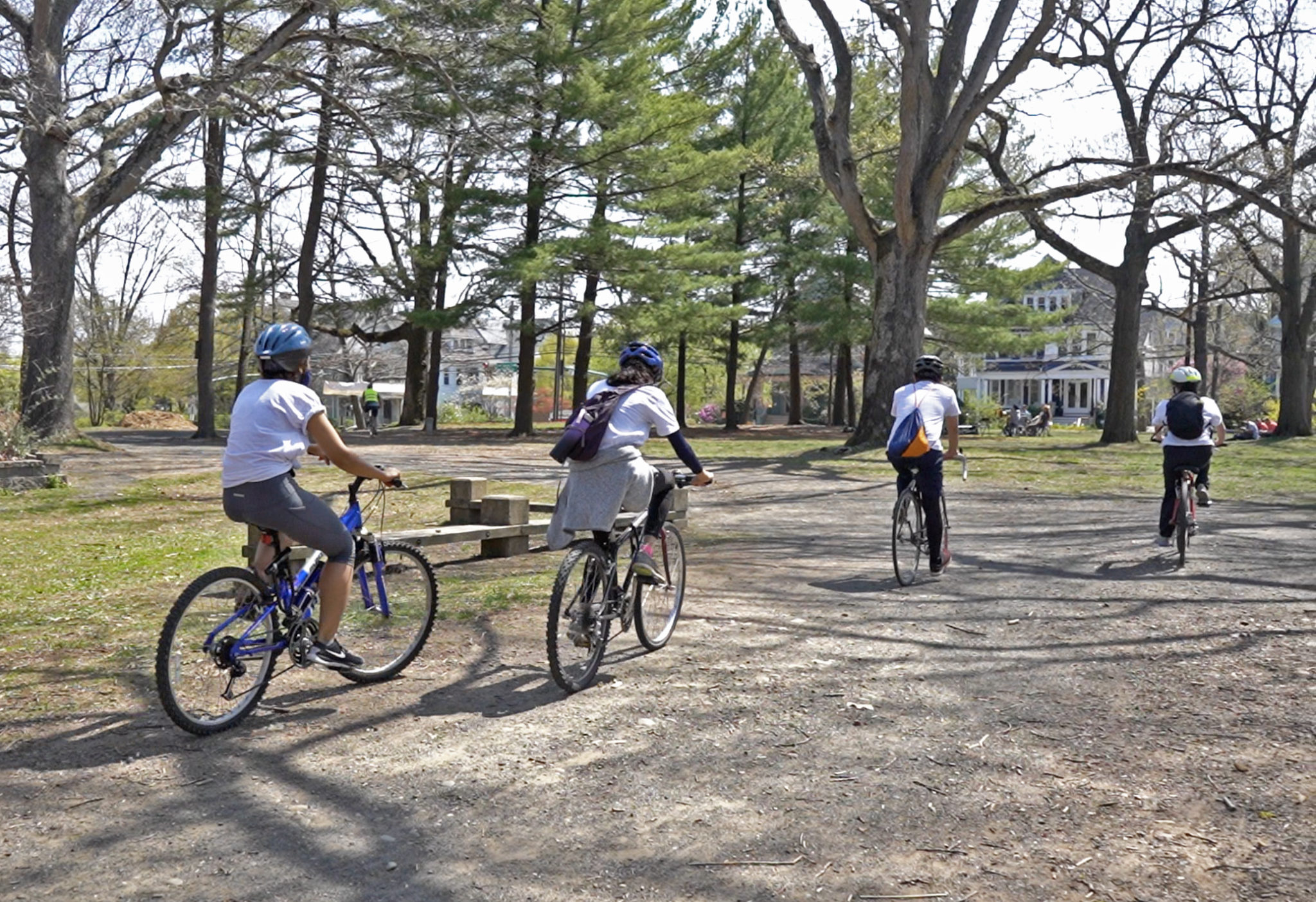Local leaders share novel approaches to climate change at conference
Representatives from various local organizations gathered at Albertus Magnus College to discuss responses to climate change in New Haven on Monday evening.

Razel Suansing, Contributing Photographer
While New Haven has adopted various efforts to address climate change in recent years, local activists remain firm in their resolve that residents and policymakers must do more to combat the ongoing climate crisis.
Four panelists who spoke at Albertus Magnus College on Monday evening acknowledged ongoing city efforts while also providing novel solutions to climate change. The panelists represented various city organizations, including the New Haven Coalition for Active Transportation, the Yale School of the Environment and the New Haven Climate Movement.
“Part of the puzzle of living in balance with our planet is finding ways to make our communities greener; our cities and our neighborhoods greener,” said Edward Dunar ’08, a philosophy and religion professor at Albertus Magnus, who coordinated the panel.
Panelist Molly Johnson ENV ’23 kicked off the event by framing climate change as an issue stemming from “imbalanced relationships” between people and their surrounding ecosystems. Johnson also discussed the negative health impact of climate change, explaining that the groups who have benefited least from the industrial development behind climate change often experience the greatest negative effects — which she referred to as a type of this “imbalance.”
This concept is commonly referred to as “environmental racism,” which argues that low-income and minority communities often experience a disproportionate number of environmental hazards – such as low air quality and garbage dumps – that impacts their general quality of life.
“We really do need an ‘all-of-government’ approach to addressing climate change,” said Steve Winter, executive director of New Haven’s Climate and Sustainability Office.
Winter said that the city has applied for multiple grants to fund projects including boosting recycling education, decarbonizing heating and implementing city-wide composting programs.
Decarbonizing heating systems entails switching from oil and gas-based heating to using electric heat pumps (see how do heat strips work here). According to Winter, the switch could drastically improve indoor air quality and help fight the negative health impacts of climate change in the city.
Winter also acknowledged ongoing efforts to reduce waste, touching on West Haven’s co-collection composting program, which began in November. The pilot program provides curbside food scrap collection services, encouraging residents to easily separate and compost their food scraps.
The program implementation was particularly significant as it followed the permanent closure of the Hartford incinerator in July. According to the city of West Haven, the closure reduced Connecticut’s trash disposal capacity by 30 percent. This led the city to dispose of more trash outside of the state, which triggered jumps in trash disposal fees from between $67 to $120 per ton to upwards of $200 per ton.
Composting programs such as the one implemented in West Haven have the potential to reduce the quantity of trash households produce, in addition to reducing the cost of waste management for the city, according to Winter.
He also emphasized the ecological benefits of composting, as such programs may take more “valuable organic matter out of the waste stream, and [put it] into building our soils, [and] into our local community gardens.”
Lee Osorio, executive director of the New Haven Coalition for Active Transportation, suggested supporting more cycling in the city as a way to fight climate change on the individual scale. She urged people to treat their own bodies as a “source of energy,” rather than relying on oil or gas to get from place to place.
While Osorio noted that New Haven has become increasingly “bike-friendly,” she explained that the city ought to further encourage the use of bikes as a method of local transportation. She also acknowledged the recent push to electrify city buses, which would make public transportation a more eco-friendly alternative. However, Osorio suggested that buses should create more space for bike storage in order to encourage individuals to both bike and use public transit.
Additionally, she advocated for the city to provide educational biking programs that teach bikers to maneuver safely on the roads.
“It is heartening how many of the solutions mentioned are achievable, because they have been demonstrated in other cities and are already underway where we are,” Dunar wrote in an email to the News. “Feasibility over time will depend on resources and ongoing commitment.”
Dunar also explained that he believes the feasibility of the climate change solutions suggested at the panel will largely depend on the financial resources available to both the city and nonprofit organizations aiming to address climate change. While these resources primarily consist of federal and state grants, they also rely on “donations of time” from local residents and government.
“We need a sense of urgency,” wrote Dunar. “We also need a long-term vision that will make ongoing and persistent attention and adaptation possible over time. We need both.”
The panel took place at the Behan Community Room at Albertus Magnus College.
Interested in getting more news about New Haven? Join our newsletter!







